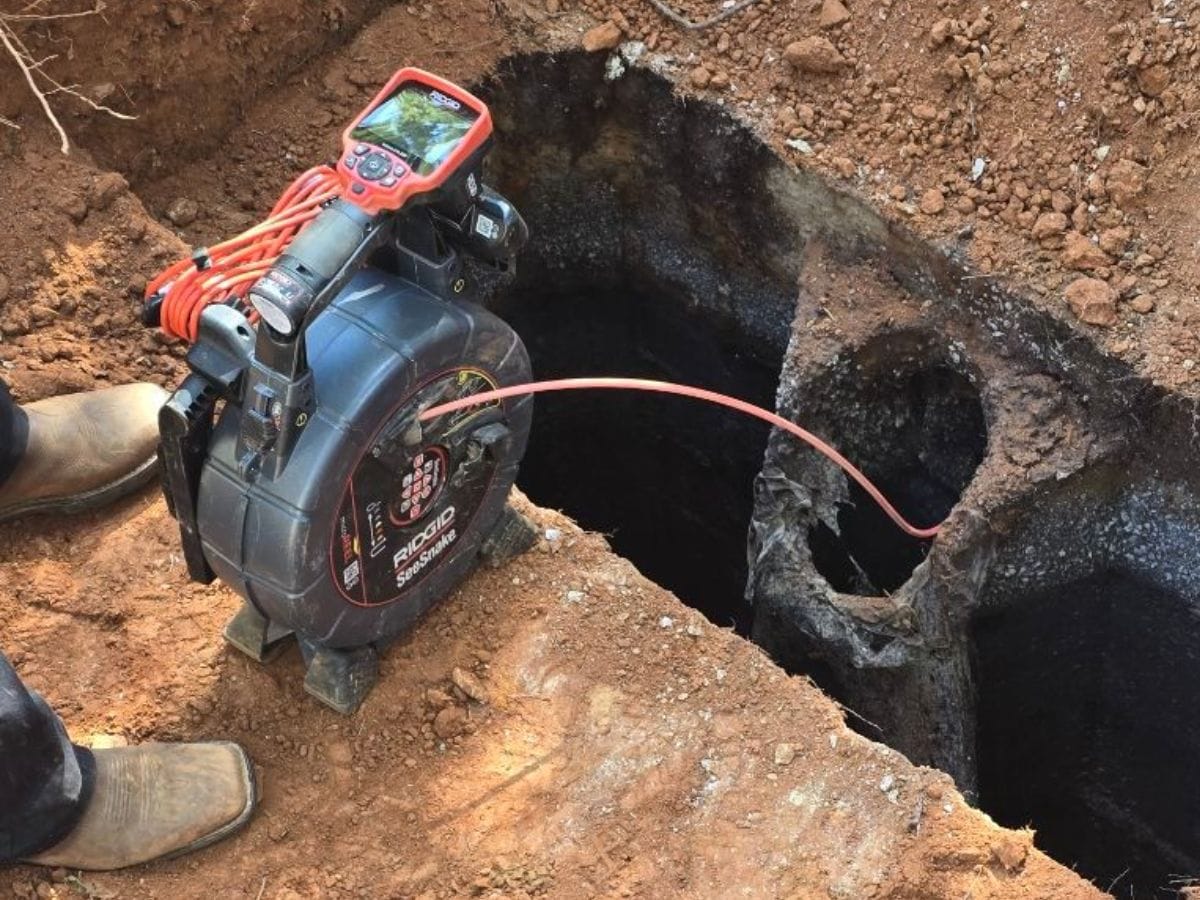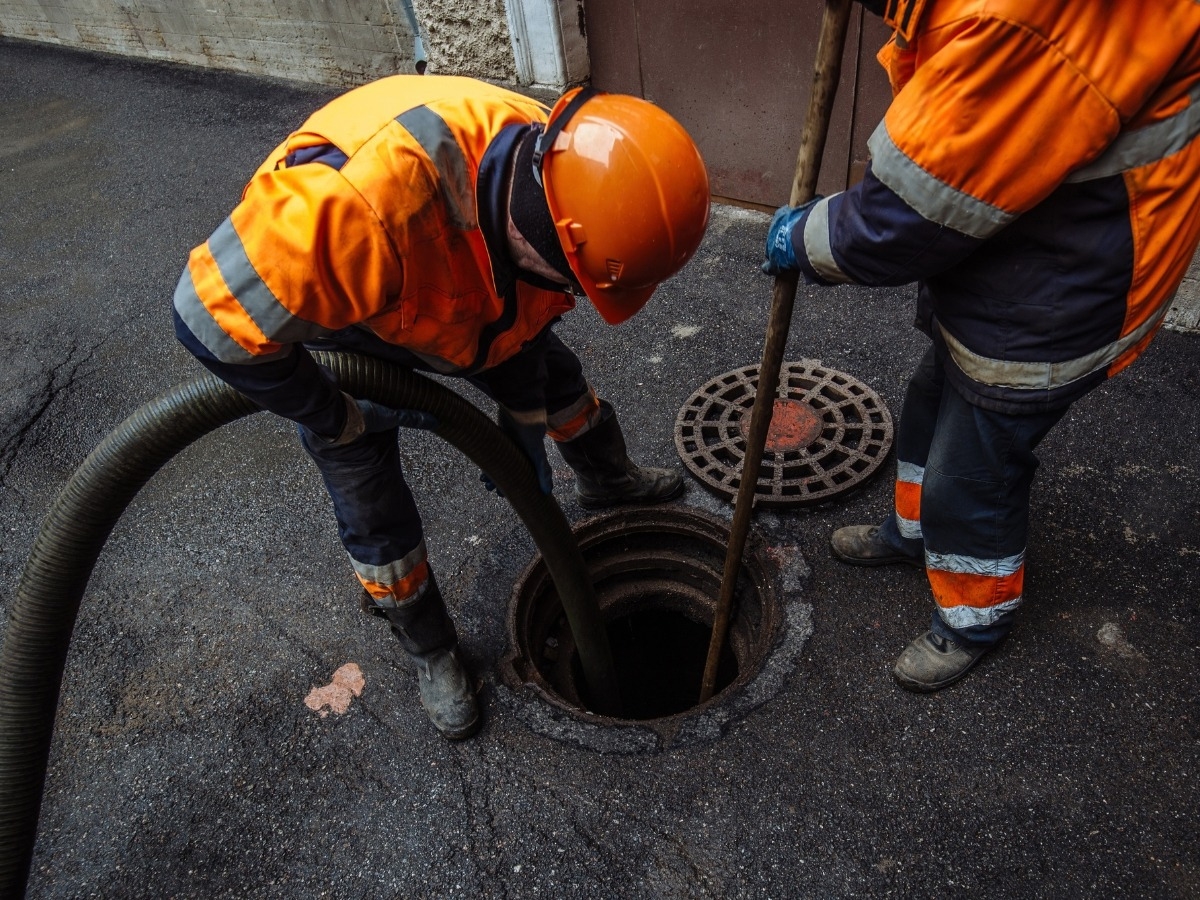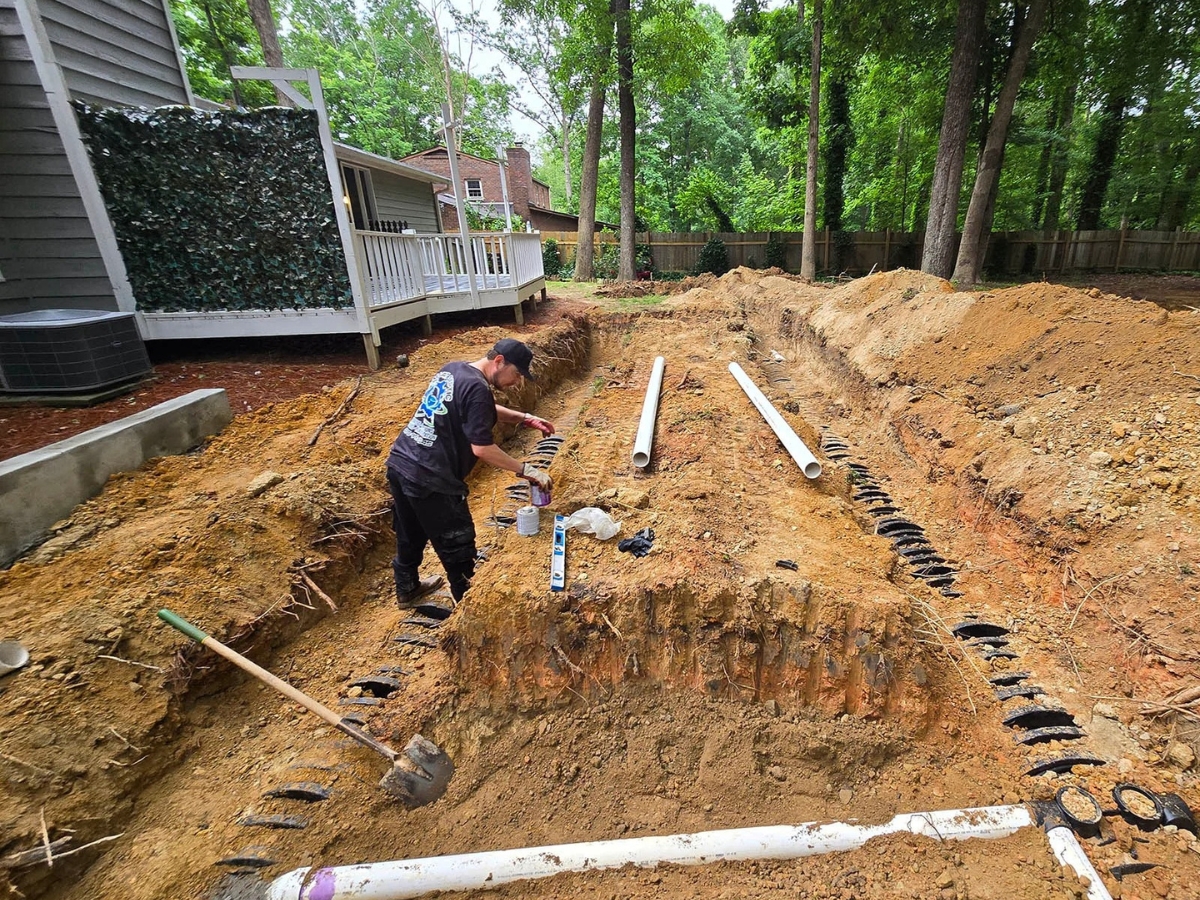Are you confident that your septic tank meets Georgia’s inspection standards? Navigating the the septic inspection requirements for septic tank inspections can seem complex, but with the right information, you can ensure water safety and proper sewage management on your property.
This post will guide you through the essentials: when you need an inspection, how to move forward with it, and how to understand the resulting reports. Dive into this article to stay informed, avoid penalties, and maintain your septic drain field effectively. Better knowledge leads to better decisions for your home’s drainagehealth and compliance.
Key Takeaways
Overview of Georgia’s Septic TankInspection Requirements
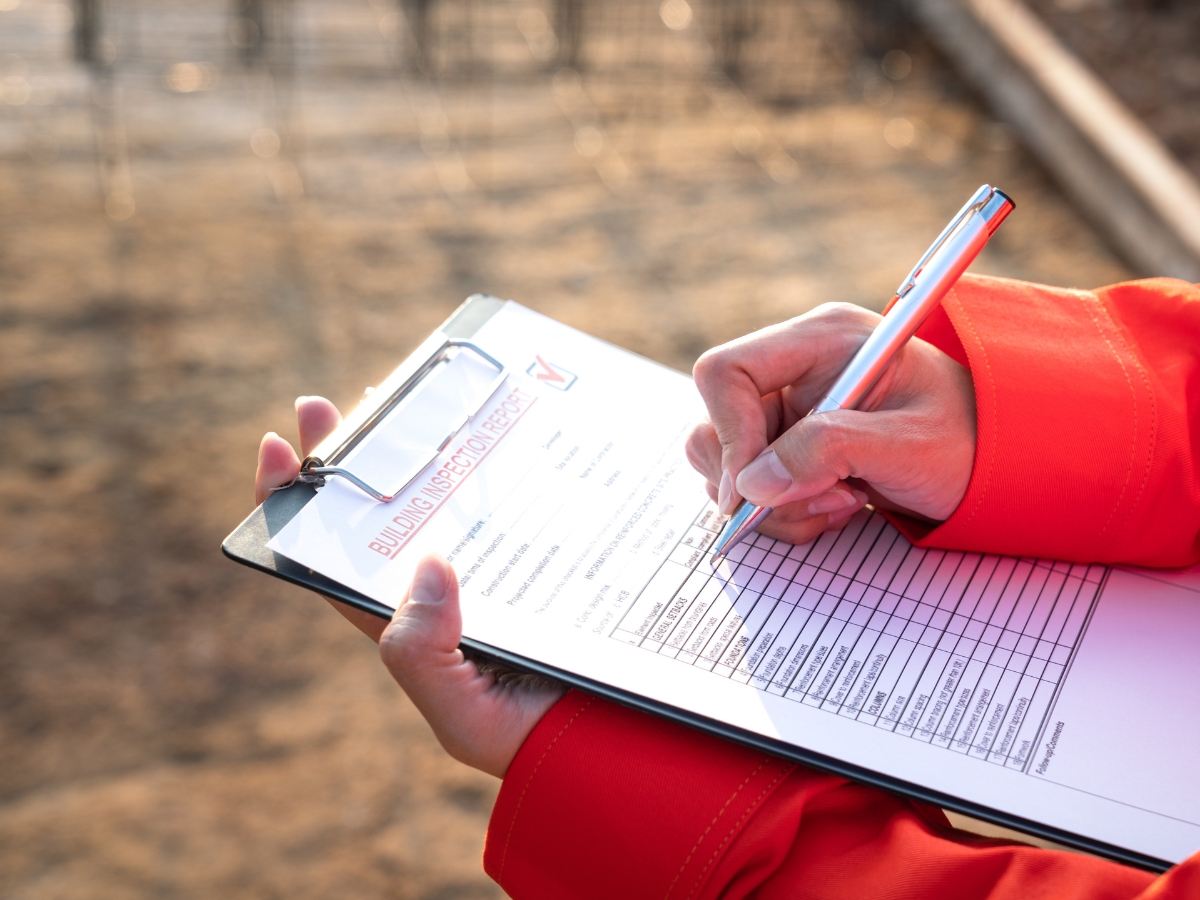
Hey there! In Georgia, staying on top of septic tankinspection is a must, not just for the sake of your property but also to meet state laws that are in place. Think of your septic system as a personal sewage treatment facility; it requires regular maintenance to ensure environmental health and prevent any messy situations. You’ll need to be familiar with the key regulations governing septic systems to avoid any legal headaches and keep everything ticking over nicely.
So, let’s walk through what you need to know about maintaining your septic tank, why it’s crucial to play by the state rules, and what happens if you don’t.
Key Regulations Governing Septic Systems
When it’s time for a septic tankinspection in Georgia, understanding how to keep your system compliant can save you from headaches down the road. A key part of these regulations is the assessment of your drain field soil‘s absorption rate, ensuring it’s fit for handling your household waste. If you’ve recently bought a home, a thorough home inspection with a focus on the septic system is crucial, and it’s smart to budget for a possible inspectionfee. This is because, let’s face it, nobody wants a failed system turning their backyard into a swamp.
Sometimes, the official charges for septic inspections can be surprising, so it’s a good idea to stay informed. For instance, you should know that Georgia counties may slap fees on various inspection processes. So, you’d need to dig into the local regulations of your county to understand the full scope of what’s required, including the necessary paperwork and any applicable fees. Getting ahead of these procedures can keep you in the clear and your septic system running without a hitch.
Importance of Compliance With State Laws
Keeping on the right side of the law when it comes to your septic system isn’t just about ticking boxes. It’s about ensuring your household waste is managed responsibly to protect health and the environment. The United States Environmental Protection Agency has guidelines you’re expected to follow, and local inspectors are on the lookout for compliance. Think of regular inspections as a partnership with the state for a safer, healthier community—it’s worth the effort!
Now, you might wonder what happens if you cut corners with your septic plumbingmaintenance or inspections. Let’s not mince words here: ignoring the rules can lead to dire consequences, from hefty fines to potentially contaminating your property. Not only would that be a nightmare for you and your neighbors, but it could also put you at odds with environmental protections. Make sure you’re familiar with the necessary steps and get that inspection scheduled. It’s easier, and often less expensive, to play it straight and keep your system in check.
You’ve got the lay of the land on Georgia’s requirements for septic inspections. Let’s now pinpoint when it’s time to inspect your tank.

When Is a Septic TankInspection Necessary in Georgia?
Hey, if you’re dealing with a property that has a septic system in Georgia, know when to roll up your sleeves for an inspection. Whether buying or selling, fresh information on the state of your system is key. Keep an eye out for signs suggesting an inspection is vital. This is crucial, as a well-running system protects groundwater and follows gravity‘s lead in treating effluent. Don’t get caught unprepared at property tax time! Regular maintenance goes a long way, so let’s dive into when to pencil in those inspections for the health of your home and land.
Buying or Selling Property With a Septic System
When you’re looking to buy or sell a property with a septic system in Georgia, a crucial step before signing any papers is to get a comprehensive septic tankinspection. This isn’t just about checking the toilet for a flush; it’s about digging deeper to ensure the system, possibly including a sand filter, is fully functional and up to code. Consider this especially vital if you’re seeking a loan, as lenders often require a passing inspection report to process your financing without a hitch.
Don’t hesitate to send an email to local inspectors or companies well-versed in Georgia’s regulations before setting your heart on a property. They can offer a detailed look at the septic system’s condition and even keep you in the loop regarding any updates Washington might have made to environmental laws. By taking this step, you put yourself in a good position, avoiding future disruptions caused by an underperforming or non-compliant septic system.
| Action | Purpose | Benefit |
|---|---|---|
| Septic Tank Inspection | Verify system functionality | Smooth property transaction |
| Email inspectors/companies | Understand local requirements | Stay informed and compliant |
| Review inspection report | Assess septic system health | Secure financing approval |

Signs That Indicate an Inspection Is Needed
You’re settled in Georgia, where septic systems are par for the course. Now, if you see pools of water on your property or suspect that your map of the sanitary sewer system doesn’t match reality, it’s probably time to get your septic tank checked out. Keep in mind, septic tank pumping and inspections are not only about the health of your system but also about protecting your drinking water from contamination. A simple call to a professional could mean the difference between a minor fix and a major overhaul.
Remember, tax time might also prompt a closer look at your septic system, especially if you’re considering any property-related deductions. Odd smells, slow drains, or lush patches of grass near your leach field might signal it’s high time for an inspection. Trust your senses and don’t hesitate; ensuring your system is functioning correctly can save you a hefty chunk of change and give you peace of mind that your home’s waste disposal is shipshape.
Scheduled Maintenance Inspections
You know the saying, “An ounce of prevention is worth a pound of cure”? That rings true for your septic system as well. Regular maintenance inspections are your best bet to save money and avoid unexpected system failures. By having professionals evaluate your system periodically, you’re taking proactive steps to maintain its health and functionality. These inspections can catch issues before they become serious headaches and save your yard – and wallet – from untold damage.
While stickers on your fridge remind you of appointments, don’t forget to pencil in a septic tankinspection. Check a local septic company’s website for a recommended schedule based on your household size and septic system capacity. These scheduled inspections help manage bacteria levels and ensure everything is working as it should, securing your real estate investment. Remember, a healthy septic system means a happy home, so stay on top of those inspections and enjoy the benefits of a well-maintained property.
Knowing when to inspect your septic tank is half the battle. Next, let’s walk through the steps to ensure your inspection in Georgia hits the mark.
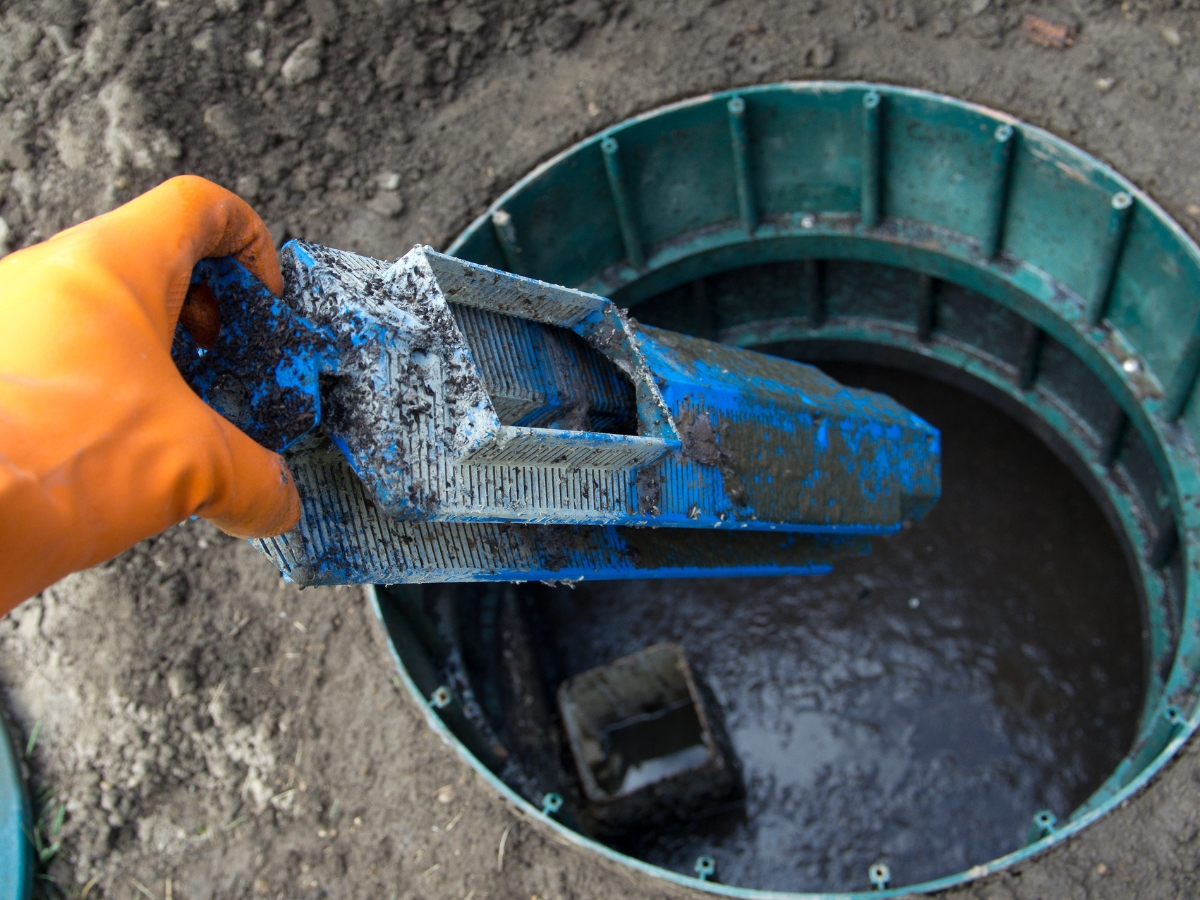
Steps to Conduct a Septic TankInspection in Georgia
Alright, let’s dig into prepping for a septic tankinspection in Georgia, a crucial step to keep pollution at bay and your system running strong. You’ll start with a visual check to spot any signs of issues like excess sludge affecting water quality.
Next up, testing the system’s functionality ensures everything’s in working order and contamination risks are minimal. Lastly, you’ll want to document your findings thoroughly. These steps are your pathway to a clean and compliant septic system, so let’s tackle them one by one.
Preparing for the Inspection Process
Ready to get your septic tankinspection rolling? You’ll need to check your property’s zoning regulations first and foremost. Understanding these rules helps you gauge if any changes, like those affecting the pipe routes leading to the lake or other bodies of water, have been implemented. Plus, it’s smart to have all your previous waste management service receipts at hand. They provide a detailed log of past maintenance and can hint at potential issues you might want to flag to the inspector.
Next, take a moment to locate your septic system’s main components. This goes for your tank, drain field, and all connecting pipes; understanding their placements saves time for the professionals and gives you insights into your land’s waste management layout. When inspection day arrives, you’ll feel more prepared and can ensure nothing’s been overlooked. And remember, a well-documented septic system keeps your property healthy and compliant with state regulations:
| Document | Purpose |
|---|---|
| Zoning Regulations | Ensure compliance with property laws |
| Service Receipts | Track maintenance history |
| System Layout | Identify component locations |
Visual Assessment of the System
Imagine walking onto your Georgia property and noticing a faint, unwelcome odor or an unusual soggy patch on the lawn. These signs suggest you may be dealing with greywater surfacing, a clear signal it’s time for a visual assessment of your septic system. You’d want to note aspects like any odors or standing water, as they speak volumes about potential malfunctions or overflows that could cost you in repairs, far more than the straightforward payment for an inspection.
Now, think about the last time you had an inspection. If you’re drawing a blank, that’s your cue to schedule one. During the visual check, keep your senses on high alert for anything out of the ordinary. Should there be issues, some counties may offer a rebate or financial assistance programs for homeowners who proactively maintain their systems, potentially saving you interest on expensive repairs down the line. You’ve invested in your property, so it’s important to invest in its care.
Testing for System Functionality
After the visual sweep, it’s time to get down to brass tacks and test your septic system’s functionality. This usually involves introducing water into the system to simulate normal use and observing how well it absorbs without causing groundwaterpollution. If you’re dealing with sand-based soils, there’s an increased risk for drainage issues, so extra attention is needed. A failing system could spell disaster financially and environmentally, so ensure your inspector includes this crucial step in their review:
| Test | Reason |
|---|---|
| Water Introduction | Simulate normal system usage |
| Soil Evaluation | Assess absorption capacity |
| Overall Functionality | Prevent system failure |
Your contract with the inspection service should also specify the assessment of the tank‘s effluent filter and baffles, as these components are critical for minimizing solids entering the drain field and thus preventing eventual failure. A comprehensive functionality test protects you from unexpected and costly repairs, keeping your septic tank effective and safeguarding the environment against potential pollution risks. You want to rest easy knowing the very ground you walk on won’t surprise you with untimely and expensive issues.
Documenting Inspection Findings
Once your septic system has been thoroughly inspected, documenting the findings is next on your to-do list. This ensures you’ve got a clear record of the system’s status, which comes in handy for any necessary repairs, future inspections, or when selling your property. Carefully documenting these results, which can include photographs and detailed notes about the tank‘s condition and operation, is akin to having a health record for your septic system—it helps you track its well-being over time.
Keep in mind that proper documentation can also be your best ally if you’re faced with compliance issues or need to verify that maintenance was performed according to Georgia’s septic tankinspection requirements. You’re not just keeping a record; you’re also arming yourself with evidence of due diligence that can influence property value, insurance rates, and legal standing. So, make sure your inspector gives you a comprehensive report that both qualifies and quantifies the functionality of your septic tank – consider it an essential component of your home maintenance portfolio.
With a clear understanding of the septic inspection process, it’s time to find the right eyes for the job. Trust in a skilled inspector is the backbone of a thorough evaluation.

Selecting a Qualified Septic TankInspector
When it comes to keeping your septic tank in check, picking the right inspector is crucial. In Georgia, professionals must meet specific certification requirements, which adds a layer of trust to the inspection process. You’ll want tips for choosing the most reliable expert for the job and need to know how to verify their credentials and experience. A little legwork up front ensures you’re getting quality service that adheres to state standards, keeping your septic system in top shape.
Certification Requirements in Georgia
Imagine you’re about to climb into the cockpit of a plane. You’d want a certified pilot at the helm, right? The same goes for selecting a septic tankinspector in Georgia. Inspectors must have valid certification, ensuring they’re up to speed with the latest practices and regulations. It’s important to check that they’re registered with the Georgia Department of Public Health, which gives you confidence they can handle the intricacies of septic systems and protect your property from potential issues.
Now, getting down to the nitty-gritty: an inspector‘s credentials provide a peek at their capability to inspect, diagnose, and offer solutions for your septic system. For this reason, ask for proof of their National Association of Wastewater Technicians (NAWT) certification or an equivalent Georgia-recognized qualification. These credentials mean they’ve been trained in inspection procedures and are well-versed in state compliance requirements: essential factors when it comes to the health of your septic system and adherence to environmental standards.
| Certification | Provides Assurance That: |
|---|---|
| Georgia Department of Public Health Registration | Inspector is informed on state-specific septic system regulations. |
| NAWT Certification | Inspector has received training on proper inspection procedures. |
Tips for Choosing a Reliable Professional
Scouting for a septic tankinspector? Your best bet is to lean on word-of-mouth recommendations or check out online reviews from folks in your neck of the woods. Make sure the pro you choose has a track record of prompt, detailed service, so there’s no second-guessing the health of your septic system. It’s not just about ticking off a task from your list; you’re securing a trusted advisor for your home’s waste management.
Once you’ve got a few names, give them a ring and feel out their customer service. Ask them pointed questions about their experience with Georgia’s specific septic tank requirements. A great inspector won’t just sell you on their services; they’ll take the time to explain what the inspection will involve and how it keeps both your property – and the environment – safe and sound. They should ooze confidence in their work, which, in turn, leaves you feeling confident and relieved.
Verifying Credentials and Experience
Starting your search for a septic tankinspector might seem like a simple task, but ensuring they have the right credentials and experience is pivotal. It’s as if you’re recruiting someone to care for a valuable piece of your property – because you are! Check if they’re listed with the Georgia Department of Public Health or if their NAWT certification is up to date; these are hallmarks of a seasoned pro. You wouldn’t want anyone but a skilled practitioner handling your healthcare, so apply the same scrutiny here.
| Credential/Experience | Significance |
|---|---|
| Listed with Georgia Department of Public Health | Confirms they’re authorized to operate in Georgia. |
| Current NAWT Certification | Ensures trained in up-to-date inspection standards. |
| Years of Practice | Gives insight into depth of practical experience. |
After confirming certifications, delve into their practical experience: how vast is their knowledge of Georgia’s septic systems, and can they provide client testimonials or case studies? Talk to them about the most challenging inspections they’ve handled; you’ll learn about their problem-solving skills and attention to detail. An inspector with a broad range of experience will be adept at forestalling potential issues, saving you stress and surprise repair costs down the road.
Choosing the right septic tankinspector was just the first step. Now, grasp what they’ve uncovered with a keen eye as you dive into the inspection report.

Understanding the Septic Inspection Report
So you’ve had your septic system checked out, now what? The inspection report can be a goldmine of information, if you know how to read it. We’re going to help you understand the common issues typically flagged during inspections, decipher that technical jargon, and unpack the recommended next steps following the inspection findings. This way, you can get a crystal-clear picture of your septic tank‘s health and make informed decisions to keep it running smoothly.
Common Issues Identified During Inspections
During septic inspections in Georgia, it’s common to uncover issues like drain field malfunctions or tanks due for a pumping. Tank covers not securely sealed or inlet and outlet baffles showing signs of damage are also flagged. This feedback directly relates to your system’s efficiency and potential health implications for your household and the environment. As a responsible homeowner, you’ll want to tackle these findings promptly to keep your septic system in optimal condition.
Another set of common problems found during inspections include cracks in the septic tank or irregularities in the tank‘s levels, which might mean it’s either overfull or not filling properly. These aren’t just random observations; they underscore the possibility of underlying issues that could lead to more significant problems if left unresolved. Addressing these concerns as they arise helps you maintain a clean bill of septic health, preventing the unpleasantries of system backups or failures:
| Common Issues | Potential Implications | Suggested Action |
|---|---|---|
| Drain field malfunction | Possible system overload or field saturation | Immediate professional assessment |
| Cracks in septic tank | Increased risk of leaks and pollution | Repair or replacement evaluation |
| Irregular tank levels | Indicators of blockages or leaks | System flush or leak detection |
Interpreting Technical Terminology
Hey there, ever peer at your septic inspection report and feel like it’s in a foreign language? You’re not alone. Words like ‘effluent‘ simply mean the liquid waste that exits your tank, and when you see ‘scum layer,’ it’s just the floating stuff on top. Understanding these terms helps you get the big picture of your system’s health and what needs your attention.
Let’s tackle another: ‘sludge layer.’ This is the heavier, settled stuff at the bottom of your tank, and if your report mentions ‘high sludge levels,’ it’s a heads-up to pump out your tank sooner rather than later. It’s crucial to grasp these basics so you can maintain your septic tank effectively and comply with Georgia’s guidelines. Simple as that!
Recommended Actions Based on Findings
So you’ve got the septic inspection report in hand, and there are a few issues that need tackling. Based on the findings, you might need to schedule a septic tank pumping, especially if the report indicates high sludge levels, which could hamper your system’s efficiency. This isn’t a suggestion but a necessary step – think of it as a regular oil change for your car to keep everything running smoothly.
If the report points out serious concerns, like damage to the drain field or tank, you’ll need to act quickly to get those repaired. Ignoring these red flags could lead to bigger, costlier problems down the line. Like a trusted mechanic who spots a problem during a routine check-up, your inspector’s advice is invaluable for preventing future headaches and keeping your septic system in compliance with Georgia’s guidelines.
Your septic inspection report is a map, revealing what lies beneath your backyard. Now, let’s navigate the waters of keeping that system shipshape, meeting Georgia’s standards every step of the way.
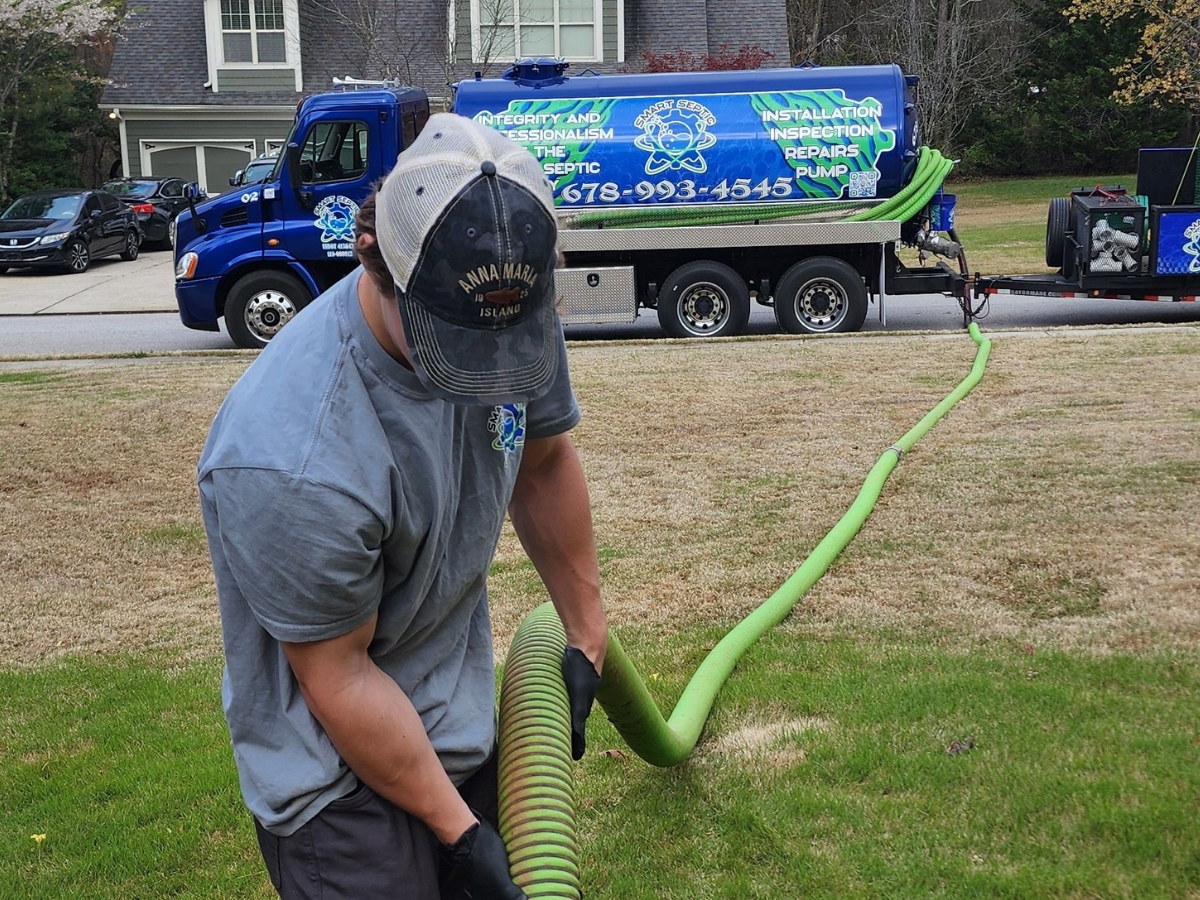
Maintaining Your Septic System to Meet Georgia Standards
Maintaining your septic system is critical for adhering to Georgia’s standards. You’ll want to get into the routine of best practices for septic system care, scheduling regular maintenance checks, and tapping into local resources for septic system owners. We’ll walk you through the essentials of keeping your system in top shape, from routine check-ups to the help available right in Georgia—all so you can avoid the hassle and keep your system compliant.
Best Practices for Septic System Care
To keep your septic system humming along and avoid falling afoul of Georgia’s regulations, you should pump out your tank every three to five years. However, this timeline could vary based on the size of your household and the volume of wastewater you generate. Keeping an eye on water usage and not overloading the system with too much at once can make all the difference in its effectiveness and lifespan.
You also want to be mindful of what goes down your drains. Avoid flushing harsh chemicals, non-biodegradable materials, and excessive amounts of kitchen grease, which can all wreak havoc on your system’s delicate balance. By taking these simple precautions, you can help maintain the intricate workings of your septic system and keep those inspection reports shining.
Scheduling Regular Maintenance Checks
Sticking to a regular schedule for septic system maintenance is like setting reminders for changing the oil in your car – it’s essential for keeping things running properly. In Georgia, arranging for a professional to check your septic tank and system components every 1-3 years, depending on your household size and wastewater output, can prevent unpleasant surprises that disrupt your life and hurt your wallet.
Remember, you’re not just taking care of a tank; you’re ensuring the well-being of the entire system that manages your home’s waste. Regular assessments can catch small issues before they escalate into major problems, assuring you that everything beneath your backyard stays in top condition and complies with Georgia’s septic system standards.
Resources for Septic System Owners in Georgia
For you as a septic system owner in Georgia, there’s a wealth of resources to ensure you remain on top of maintenance and compliance. The Georgia Environmental Protection Division provides guidelines and educational materials on their website, helping you understand your responsibilities and the best ways to care for your septic system. It’s a handy starting point for familiarizing yourself with state standards and accessing practical advice for system upkeep.
You can also reach out to your local county health department for more localized support. They often have details about specific requirements for septic system maintenance in your area and can be a go-to resource for finding certified septic system service providers. This direct connection to local expertise ensures you’re keeping your system functioning well and meeting all necessary Georgia regulations.
Frequently Asked Questions
What are the basic septic tankinspection requirements in Georgia?
In Georgia, septic tank inspections require checking the tank‘s condition, measuring sludge levels, and ensuring proper operation of the system’s components.
How often should I get my septic tank inspected in Georgia?
In Georgia, it’s wise to schedule a septic system inspection every three years, but if you have mechanical components, aim for annual check-ups to prevent issues.
What are the key steps for a proper septic tankinspection?
A proper septic tankinspection involves locating the tank, checking for leaks, assessing the scum and sludge layers, inspecting the tank‘s structural integrity, and verifying drain field condition.
How do I choose a certified septic tankinspector in Georgia?
Choosing a certified septic tankinspector in Georgia requires checking credentials with the Georgia Department of Public Health and looking for positive local reviews or recommendations.
What information does a septic inspection report include?
A septic inspection report typically details the system’s condition, tank integrity, drain field functionality, and any maintenance recommendations.
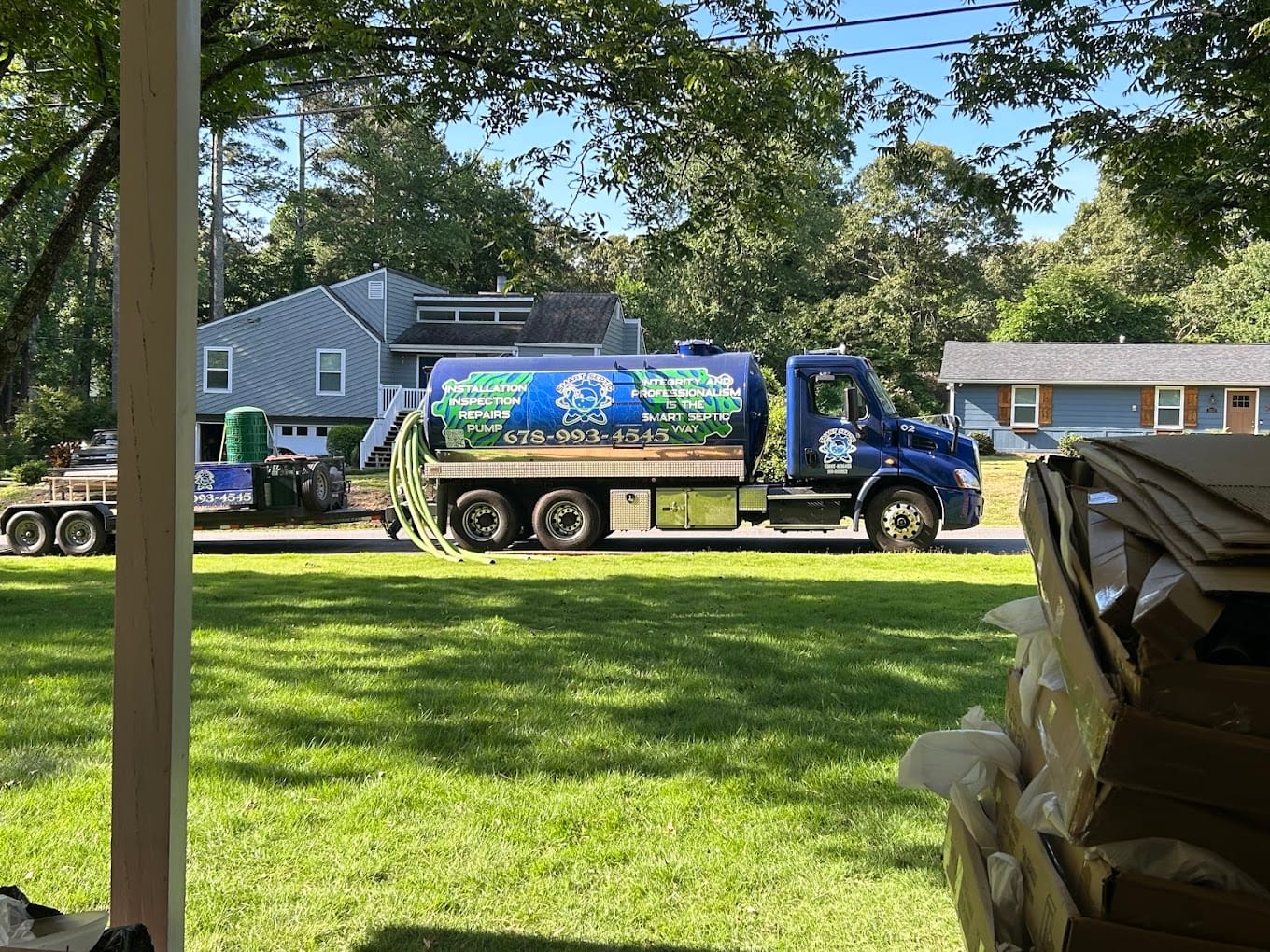
Contact Smart Septic Pros for Expert Guidance
Understanding septic tankinspection requirements in Georgia is crucial for homeowners to maintain their property’s health and comply with state laws, safeguarding environmental and personal well-being. Staying informed about the regulations and scheduling regular inspections can prevent costly repairs and ensure smooth real estate transactions.
It’s essential that homeowners choose qualified inspectors who are certified and experienced, as their expertise plays a key role in the system’s longevity. Ultimately, grasping the inspection process and results not only secures your investment but also contributes to a safer community.
When it comes to navigating Georgia’s septic inspection requirements, seeking guidance from the experts is essential. Contact Smart Septic Pros for professional assistance and advice on meeting all the necessary regulations. With our expertise and knowledge, we can ensure that your septic system is inspected thoroughly and meets all the local guidelines. Don’t hesitate to reach out to us for a seamless and stress-free septic inspection process.
